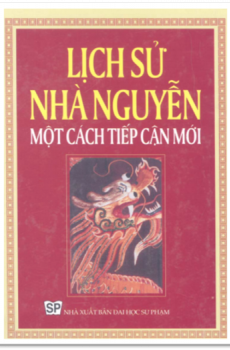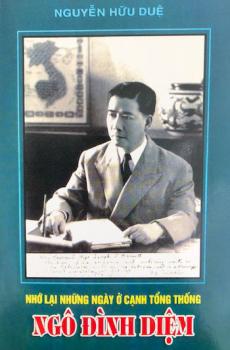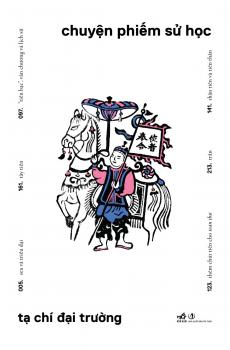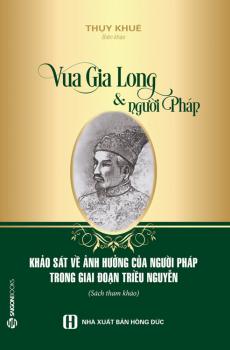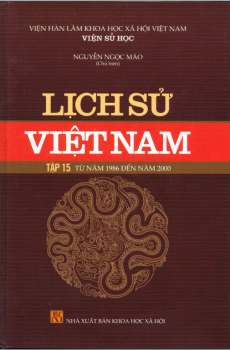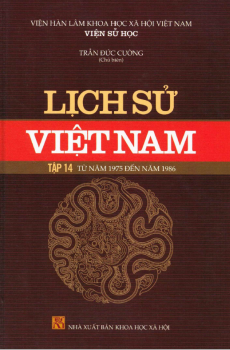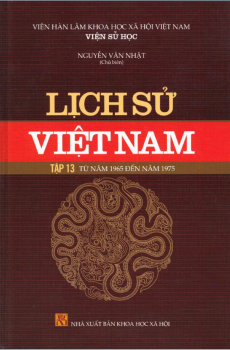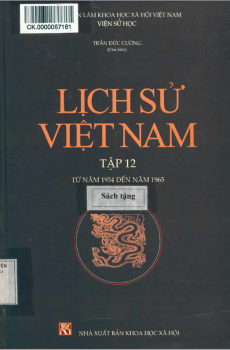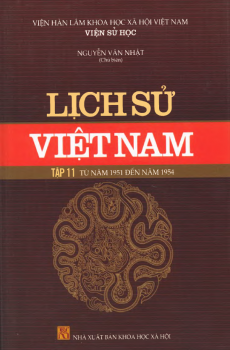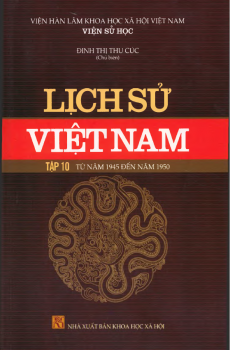Beacon Lights of History, Volume V
Beacon Lights of History, Volume V
Đăng nhập để đọc sách và tải về file pdf miễn phí
| Nhà xuất bản | unknown |
|---|---|
| Nhà xuất bản sách tiếp cận | Public domain |
| Năm xuất bản | 2005 |
| Coppy right | Chưa rõ |
***START OF THE PROJECT GUTENBERG EBOOK BEACON LIGHTS OF HISTORY, VOLUME V***
E-text prepared by Juliet Sutherland, Charlie Kirschner,
and the Project Gutenberg Online Distributed Proofreading Team
Editorial note:
Project Gutenberg has an earlier version of this work, which is titled Beacon Lights of History, Volume III, part 1: The Middle Ages. See E-Book#1498, http://www.gutenberg.net/etext98/31blh10.txt or http://www.gutenberg.net/etext98/31blh10.zip. The numbering of volumes in the earlier set reflected the order in which the lectures were given. In the current (later) version, volumes were numbered to put the subjects in historical sequence.
LORD'S LECTURES.
BEACON LIGHTS OF HISTORY.
BY JOHN LORD, LL.D.
AUTHOR OF "THE OLD ROMAN WORLD," "MODERN EUROPE," ETC., ETC.
VOLUME V.
THE MIDDLE AGES.
CONTENTS.
MOHAMMED.
SARACENIC CONQUESTS.
Change of public opinion about Mohammed
Astonishing triumph of Mohammedanism
Old religious systems of Arabia
Polytheism succeeds the doctrines of the Magians
The necessity of reform
Early life of Mohammed
Cadijeh
Mohammed's meditations and dreams
His belief in a personal God
He preaches his new doctrines
The opposition and ridicule of his countrymen
The perseverance of Mohammed amid obstacles
His flight to Medina
The Koran and its doctrines
Change in Mohammed's mode of propagating his doctrines
Polygamy and a sensual paradise
Warlike means to convert Arabia
Mohammed accommodates his doctrines to the habits of his countrymen
Encourages martial fanaticism
Conquest of Arabia
Private life of Mohammed, after his success
Carlyle's apology for Mohammed
The conquest of Syria and Egypt
Conquest of Persia and India
Deductions in view of Saracenic conquests
Necessity of supernatural aid in the conversion of the world
Authorities
CHARLEMAGNE.
REVIVAL OF WESTERN EMPIRE.
Ancestry and early life of Charlemagne
The Merovingian princes
Condition of Europe on the accession of Charlemagne
Necessity for such a hero to arise
His perils and struggles
Wars with the Saxons
The difficulties of the Saxon conquest
Forced conversion of the Saxons
The Norman pirates
Conquest of the Avares
Unsuccessful war with the Saracens
The Lombard wars
Coronation of Charlemagne at Home
Imperialism and its influences
The dismemberment of Charlemagne's empire
Foundation of Feudalism
Charlemagne as a legislator
His alliance with the clergy
His administrative abilities
Reasons why he patronized the clergy
Results of Charlemagne's policy
Hallam's splendid eulogy
Authorities
HILDEBRAND.
THE PAPAL EMPIRE.
Wonderful government of the Papacy
Its vitality
Its contradictions
Its fascinations
The crimes of which it is accused
General character of the popes
Gregory VII. the most famous
His personal history
His autocratic ideas
His reign at the right time
Society in Europe in the eleventh century
Character of the clergy
The monks, and the need of reform
Character of the popes before Gregory VII.
Celibacy of the clergy
Alliance of the Papacy and Monasticism
Opposition to the reforms of Hildebrand
Terrible power of excommunication
Simony and its evils
Secularization of the clergy
Separation of spiritual from temporal power
Henry IV. of Germany
Approaching strife between Henry and Hildebrand
Their respective weapons
Henry summoned to Rome
Excommunication of Henry
Henry deserted and disarmed
Compelled to yield to Hildebrand
His great mistake
Renewed contest
Humiliation of the Pope
Moral effects of the contest
Speculations about the Papal power
Authorities
SAINT BERNARD.
MONASTIC INSTITUTIONS.
Antiquity of Monastic life
Causes which led to it
Oriental asceticism
Religious contemplation
Insoluble questions
Self-expiations
Basil the founder of Monasticism
His interesting history
Gregory Nazianzen
Vows of the monks
Their antagonism to prevailing evils
Vow of Poverty opposed to money-making
That of Chastity a protest against prevailing impurity
Origin of celibacy
Its subsequent corruption
Necessity of the vow of Obedience
Benedict and the Monastery of Monte Casino
His rules generally adopted
Lofty and useful life of the early monks
Growth and wealth of Monastic institutions
Magnificence of Mediaeval convents
Privileges of the monks
Luxury of the Benedictines
Relaxation of discipline
Degeneracy of the monks
Compared with secular clergy
Benefits which Monasticism conferred
Learning of the monks
Their common life
Revival of Learning
Rise of Scholasticism
Saint Bernard
His early piety and great attainments
His vast moral influence
His reforms and labors
Rise of Dominicans and Franciscans
Zeal of the mendicant friars
General benefits of Monastic institutions
Authorities
SAINT ANSELM.
MEDIAEVAL THEOLOGY.
Birth and early life of Anselm
The Abbey of Bec
Scholarly life of Anselm
Visits of Anselm to England
Compared with Becket
Lanfranc, Archbishop of Canterbury
Privileges of the Archbishop
Unwillingness of Anselm to be elevated
Lanfranc succeeded by Anselm
Quarrel between Anselm and William Rufus
Despotic character of William
Disputed claims of Popes Urban and Clement
Council of Rockingham
Royal efforts to depose Anselm
Firmness and heroism of Anselm
Duplicity of the king
His intrigues with the Pope
Pretended reconciliation with Anselm
Appeals to Rome
Inordinate claims of the Pope
Allegiance of Anselm to the Pope
Anselm at Rome
Death of William and Accession of Henry I.
Royal encroachments
Henry quarrels with Anselm
Results of the quarrel
Anselm as a theologian
Theology of the Middle Ages
Monks become philosophers
Gotschalk and predestination
John Scotus Erigena
Revived spirit of inquiry
Services of Anselm to theology
He brings philosophy to support theology
Combats Nominalism
His philosophical deductions
His devout Christian spirit
Authorities
THOMAS AQUINAS.
THE SCHOLASTIC PHILOSOPHY.
Peter Abélard
Gives a new impulse to philosophy
Rationalistic tendency of his teachings
The hatreds he created
Peter Lombard
His "Book of Sentences"
Introduction of the writings of Aristotle into Europe
University of Paris
Character of the students
Their various studies
Aristotle's logic used
The method of the Schoolmen
The Dominicans and Franciscans
Innocent III.
Thomas Aquinas
His early life and studies
Albertus Magnus
Aquinas's first great work
Made Doctor of Theology
His "Summa Theologica"
Its vast learning
Parallel between Aquinas and Plato
Parallel between Plato and Aristotle
Influence of Scholasticism
Waste of intellectual life
Scholasticism attractive to the Middle Ages
To be admired like a cathedral
Authorities
THOMAS BECKET.
PRELATICAL POWER.
Becket a puzzle to historians
His early history
His gradual elevation
Friendship with Henry II.
Becket made Chancellor
Elevated to the See of Canterbury
Dignity of an archbishop of Canterbury
Lanfranc
Anselm
Theobald
Becket in contrast
His ascetic habits as priest
His high-church principles
Upholds the spiritual courts
Defends the privileges of his order
Conflict with the king
Constitutions of Clarendon
Persecution of Becket
He yields at first to the king
His repentance
Defection of the bishops
Becket escapes to the Continent
Supported by Louis VII. of France
Insincerity of the Pope
Becket at Pontigny in exile
His indignant rebuke of the Pope
Who excommunicates the Archbishop of York
Henry obliged to compromise
Hollow reconciliation with Becket
Return of Becket to Canterbury
His triumphal procession
Annoyance of Henry
Assassination of Becket
Consequences of the murder
Authorities
THE FEUDAL SYSTEM.
Anarchies of the Merovingian period
Society on the dissolution of Charlemagne's empire
Allodial tenure
Origin of Feudalism
Dependence and protection the principles of Feudalism
Peasants and their masters
The sentiment of loyalty
Contentment of the peasantry
Evils that cannot be redressed
Submission to them a necessity
Division of Charlemagne's empire
Life of the nobles
Pleasures and habits of feudal barons
Aristocratic character of Feudalism
Slavery of the people
Indirect blessings of Feudalism
Slavery not an unmixed evil
Influence of chivalry
Devotion to woman
The lady of the baronial castle
Reasons why women were worshipped
Dignity of the baronial home
The Christian woman contrasted with the pagan
Glory and beauty of Chivalry
Authorities
THE CRUSADES.
The Crusades the great external event of the Middle Ages
A semi-religious and semi-military movement
What gives interest to wars?
Wars the exponents of prevailing ideas
The overruling of all wars
The majesty of Providence seen in war
Origin of the Crusades
Pilgrimages to Jerusalem
Miseries and insults of the pilgrims
Intense hatred of Mohammedanism
Peter of Amiens
Council of Clermont
The First Crusade
Its miseries and mistakes
The Second Crusade
The Third Crusade
The Fourth, Children's, Fifth, and Sixth Crusades
The Seventh Crusade
All alike unsuccessful, and wasteful of life and energies
Peculiarities and immense mistakes of the Crusaders
The moral evils of the Crusades
Ultimate results of the Crusades
Barrier made against Mohammedan conquests
Political necessity of the Crusades
Their effect in weakening the Feudal system
Effect of the Crusades on the growth of cities
On commerce and art and literature
They scatter the germs of a new civilization
They centralize power
They ultimately elevate the European races
Authorities
WILLIAM OF WYKEHAM.
GOTHIC ARCHITECTURE.
Roman architecture First form of a Christian church
The change to the Romanesque
Its peculiarities
Its connection with Monasticism
Gloomy aspect of the churches of the tenth and eleventh centuries
Effect of the Crusades on church architecture
Church architecture becomes cheerful
The Gothic churches of France and Germany
The English Mediaeval churches
Glories of the pointed arch
Effect of the Renaissance on architecture
Mongrel style of the seventeenth and eighteenth centuries
Revival of the pure gothic
Churches should be adapted to their uses
Incongruity of Protestantism with ritualistic architecture
Protestantism demands a church for preaching
Gothic vaults unfavorable to oratory
Authorities
JOHN WYCLIF.
DAWN OF THE REFORMATION.
Harmony of Protestant and Mediaeval creeds
The Reformation a moral movement
The evils of Papal institutions
The evils of monastic life
Quarrels and dissoluteness of monks
Birth of Wyclif
His scholastic attainments and honors
His political influence
The powers who have ruled the world
Wyclif sent on a mission to Bruges
Protection of John of Gaunt
Wyclif summoned to an ecclesiastical council
His defenders and foes
Triumph of Wyclif
He openly denounces the Pope
His translation of the Bible
Opposition to it by the higher clergy
Hostility of Roman Catholicism to the right of private judgment
Hostility to the Bible in vernacular tongues
Spread of the Bible in English
Wyclif as a doctrinal reformer
He attacks Transubstantiation
Deserted by the Duke of Lancaster
But dies peaceably in his parish
Wyclif contrasted with Luther
His great services to the church
Reasons why he escaped martyrdom
Authorities



